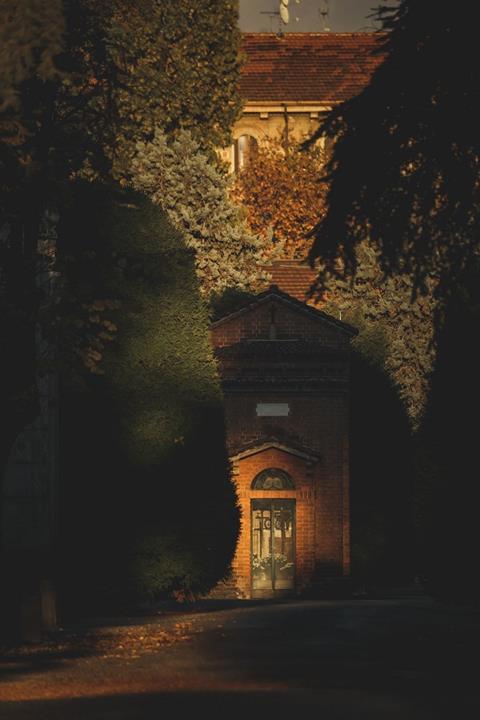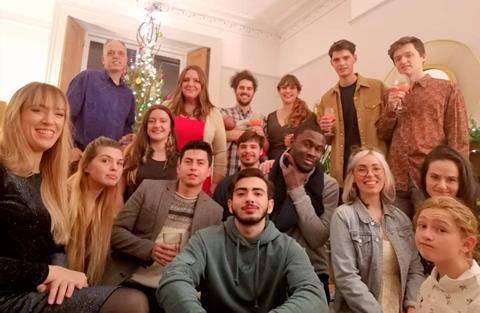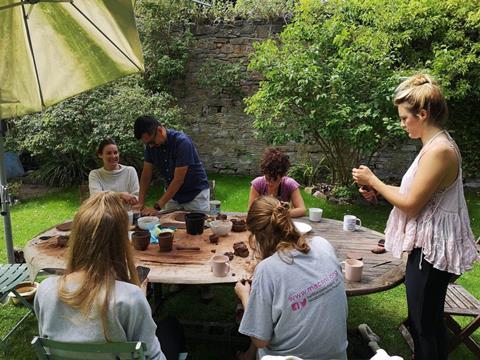Clare Thompson leads the vibrant, social-action focused LoveBristol organisation with her husband Greg. She told Clare Blake why she loves living in a Christian community house

When Dave Mitchell, senior pastor at Woodlands Church, Bristol, asked Clare and Greg Thompson if they’d consider leading a large community house, Greg embraced the idea with enthusiasm, but Clare recoiled in horror.
They’d always dreamed of living in community one day but, faced with the reality, Clare panicked. She was an introvert. How could she possibly live 24/7 in a house filled with other people? She struggled with the thought of leaving their beautifully decorated house, but a far more pressing worry was how it would impact their five kids, aged between five and ten, if they had to share their parents with a motley group of young adults.
Clare cried herself to sleep every night for a whole week, beset by doubts and fears, but then God spoke to her, saying: “You don’t have to do this, but actually there’s much more in it for you than you think.” She knew God was faithful and good. How could she turn away from a path he wanted her to follow? She came to a point of acceptance.
Fortunately, Clare quickly fell in love with the house, which is a big Victorian semi-detached with a glorious garden – a former orphanage that had once belonged to the George Müller Foundation. George Müller had pioneered a mighty work in Bristol, gathering orphans and giving them a secure home with a strong sense of family, and this spirit of creating family is also something very close to Clare and Greg’s heart. They quickly recognised how much potential the house had for community living as it had ten bedrooms, while the ground floor’s two lounges, one large and one small, and huge dining room and kitchen made ideal communal space. When Greg and Clare first moved in, people suggested they keep the small lounge for themselves, but the Thompsons rejected that idea as the last thing they wanted was to create an ‘us and them’ feel.
Sarah James, 29, manages a charity shop called Treasure for LoveBristol. She was a house member for three years, and was blown away when she first saw it. “I walked through the door and there was a massive chandelier hanging from the ceiling. I was like: “Wow, I’ve never set foot in a place so grand and beautiful.” However, the house is in no way a ‘don’t touch’ showcase, as its relaxed atmosphere makes people feel instantly at home.
A vision of community
What makes it so different from a normal house-share is that this building is a catalyst for strategic growth, where the elements of raw Christian faith are deeply embedded into everyday life. Clare explains: “We’re people who are passionate about discipleship and I was frustrated that discipleship in the Church was often limited to short meetings where it felt like we were just scratching the surface. The vision behind LoveBristol’s community houses is to provide loving homes where people can experience acceptance, nurture, growth and challenge as disciples of Jesus. Here, most discipleship takes place around the kitchen sink or the kettle…”

The house doesn’t operate by a restrictive set of rules, but people in the house are asked to fully engage in house life. In practical terms this means sharing a budget for food and bills and also chores, which are rotated weekly. As discipleship is the core value, members are asked to commit to at least four house meals a week to make space for that, especially the Monday night during which the house meeting occurs. This is where everyone can share how they’re doing, pray for each other, talk about practical things and deal with any issues. It offers a pause in the busy rhythm of life, a chance to spiritually connect and re-calibrate.
We believe community life has been a huge blessing for our children too
When Sarah first arrived, signing up to that level of commitment terrified her. For years she’d followed a haphazard lifestyle dominated by mental health issues and drug-taking and, although she’d now been miraculously restored to a close relationship with God, having written him out of her life when she was just 13, she was still quite a young Christian. Everything in her rebelled against the thought of living in a way that struck her as oppressive. “I remember thinking: ‘I don’t want to have to be there for four meals a week because I’m a free spirit’, but I’m really glad I did because it has been life-changing for me.”
Real community, real people
There is no doubt that living in a Christian community house is challenging. “It can be hard to sit down at the communal dinner table and be part of it when you’re not 100 per cent feeling it,” Sarah comments. “Being personally confronted as part of discipleship can also be tough, but for me those times have been monumental moments of growth, making me think: ‘OK, Sarah, that’s something you need to look at if it makes you harder to live with.’ Something I personally find really painful is when close housemates leave. It’s such a wrench, as they feel like family.”

For Clare, a big challenge has been trusting God with her own family. “I’ve sometimes struggled against my natural parental concerns over taking in vulnerable people who’ve got addiction history or come from prison. We did protect our kids from harder things going on in the house when they were younger, but we believe community life has been a huge blessing for them too. It’s an exciting, vibrant place to grow up, and our kids have met wonderful people who have a really strong faith.”
Another real positive for Clare is the way their community has greater capacity to carry people who are vulnerable, enabling them to provide a home and show Jesus’ love to people just out of prison, to active and recovering addicts, asylum seekers and refugees. “We’ve loved being able to take a risk and do things like that. It has been an incredible rollercoaster ride.”
When Clare first agreed to leading the community house, she thought it would probably be just for a year or two, but she’s still there 18 years later. “We’ve lived with 150 people so far and formed some amazingly close relationships. It just feels like such a fruitful thing to do and, at its best, when people are changing before our eyes, I think: ‘What else is there to live for? Who wants to just have a tidy house?’”
SIX TIPS FOR CHRISTIAN COMMUNITY LIVING
1. Communicate house vision and values clearly
Right at the start, establish the vision and core values and ensure that they are communicated clearly. Community living works much better if everyone is on the same page.
2. Make the house accountable to someone outside
Godly and wise oversight is invaluable in areas like finance, safeguarding and when planning for the future.
3. Set up a rota for chores
Encourage a serving heart where people go ‘above and beyond’ to bless others.
4. Have a weekly house meeting
Make this a key focus, not just for assigning practical tasks but for sharing life and re-envisioning through worship and prayer.
5. Encourage each other to grow as Christians
Model a lifestyle where everyone is treated as precious, whatever their background.
6. Be open and forgive quickly
You will only grow more like Jesus if you work with what he wants to do in you, and often that will involve learning to forgive those closest to you.
FURTHER INFORMATION
Find out more at lovebristol.org or read: The Intentional Christian Community Handbook by David Janzen (Paraclete Press).
































